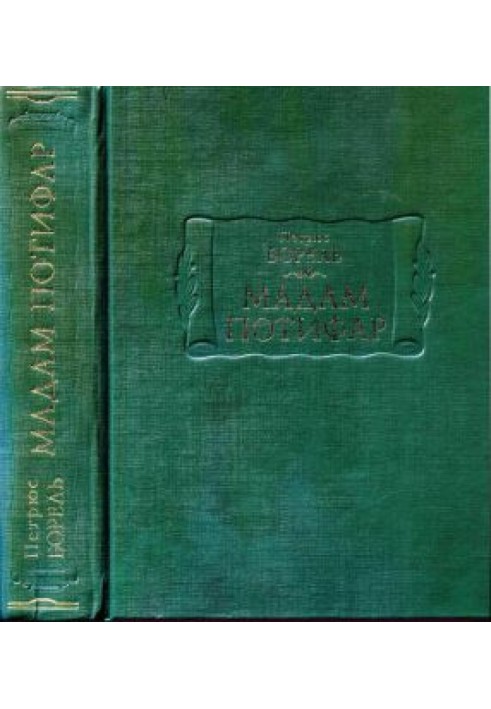Madame Potiphar
 Instant download
Instant download
after payment (24/7)
 Wide range of formats
Wide range of formats
(for all gadgets)
 Full book
Full book
(including for Apple and Android)
The novel “Madame Potiphar” (1839) is the central work of the French romantic writer and rebel poet Petrus Borel (1809-1859), known to domestic readers from the collection “Champaver. Immoral Stories" (1833), which was published in the series "Literary Monuments" in 1971. Based on the plot of "Madame Potiphar" the tragic fate of an unknown prisoner of the Bastille, who languished for many years in anticipation of release, but was never able to take advantage of it, the author unfolds before the reader a truly monumental historical canvas - the brilliant era of Louis XV in all its diversity. Here are royal favorites, gallant festivities, and secret orders for imprisonment without trial... Events associated with the beginning of the French Revolution are woven into the plot; the capture of the Bastille, the release of its few prisoners, and the euphoria of the crowd are presented in picturesque and often shocking detail. “victors”, before whom the strong walls of the royal citadel could not resist and who took possession of the instruments of the prison torture hall. Among the characters appearing or even just mentioned in the story, there are many genuine historical figures. The prototype of Madame Potiphar was the official favorite of the king, the Marquis de Pompadour. In his “prison novel,” contrary to the tradition of the genre, Borel presents a very extensive geography: following the author, the reader will walk through the gloomy alleys of castle parks, the green paths of the Irish province, the wide streets and squares of Paris , “this huge accumulation of people and stones”, will visit the flowering island of St. Margaret, penetrate into the dark crypts of the Château de Vincennes and the stench-fuelled dungeons of the Bastille. Borel also addresses existential questions, contrasting, as he puts it, three eternal forces fighting in the human chest: The world with its entertainments and feasts, the Hermitage with meditation and asceticism, Non-existence with its incomparable peace. The reader is left with the choice of how to perceive the novel “Madame Potiphar”, through which a single thought runs like a red thread - about the inscrutability of paths, the wisdom of Providence and the inevitability of Retribution for what has been done. In the “Additions” section two essays are presented: a review of the “prince of critics” Jules Janin on the novel “Madame Potaphar” and an essay by Charles Baudelaire devoted to Borel’s work as a whole. For Baudelaire, this outstanding representative of “frantic literature,” this passionate apologist for the Marquis de Sade, was “one of the luminaries in the dark skies of romanticism,” an author endowed with “truly epic talent,” which sounded in full force in the novel “Madame Potaphar.” Some modern literary scholars Pétrus Borel is considered one of the forerunners of surrealism.
Data sheet
- Name of the Author
- Петрюс Борель
- Language
- Russian
- Translator
- Анастасия Юрьевна Миролюбова
Екатерина Эдуардовна Овчарова













